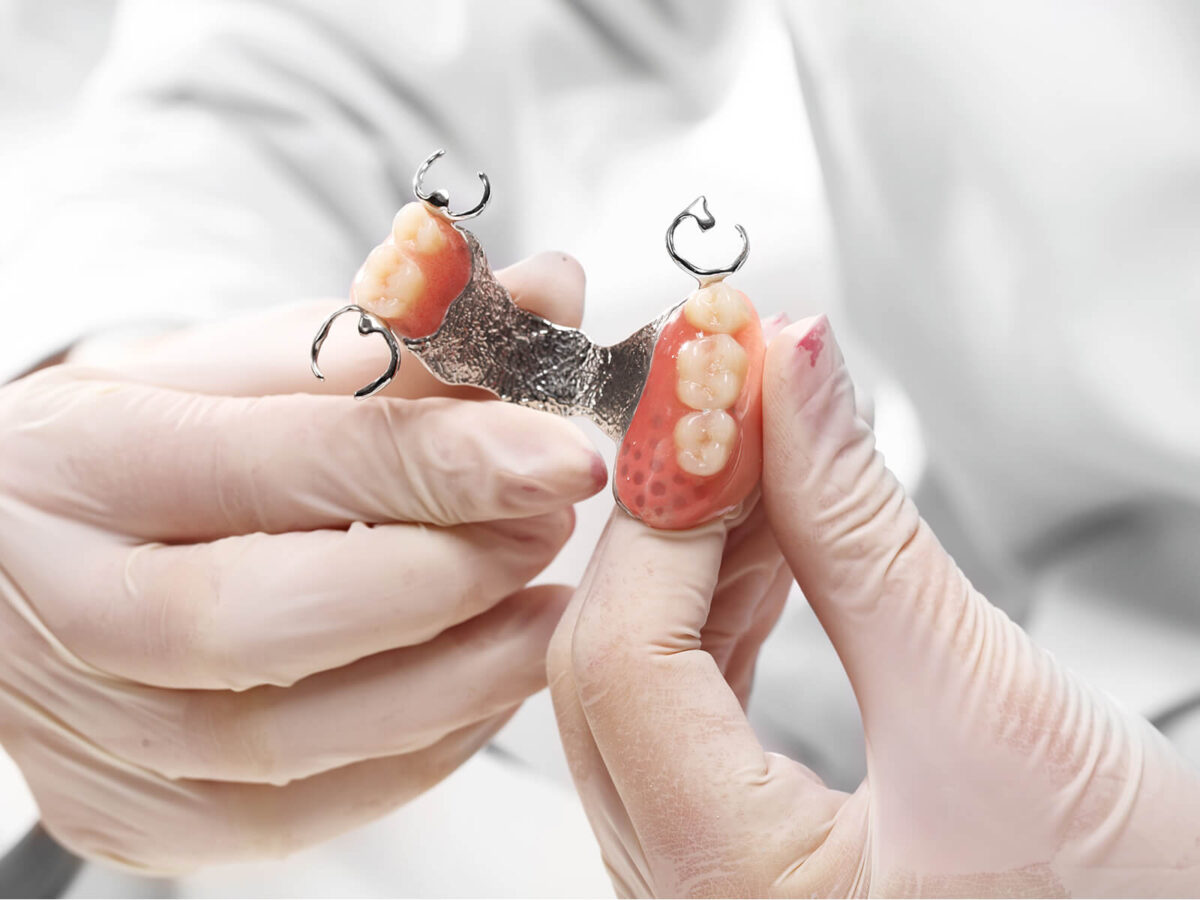Blog
Dental hygiene tips for healthy teeth & gums

How Many Teeth Are Needed For A Partial Denture?
Partial dentures are a great way for people who have lost a few teeth to improve their oral health and smile again. People who have lost some teeth because of decay, accident, or another reason should consider getting partial dentures.
Before going through the procedure, a big question arises. The question is, “what factors decide how many teeth are needed for oral health restoration using partial denture?” Let’s start with the basics.
A Brief Overview of Partial Dentures
People who have lost teeth sometimes use portable dental devices, known as partial dentures, to fill in the gaps. When you get a partial denture, you only replace a few teeth at a time instead of all your teeth in the tooth arch. These gaps can occur due to tooth loss, extraction, or other dental issues.
Minimum Teeth Required
The number of teeth needed for a partial denture for oral health restoration depends on several factors:
- Abutment teeth
They are the healthy, normal teeth that go next to the tooth gap. Each side of the gap needs at least one support tooth. This can be on the top or bottom. For this reason, two teeth are the very least a partial denture can have. - Optimal Stability:
Two abutment teeth are enough for a tooth, but you’ll need at least four for partial dentures to work well. One anchor tooth on each side of the back of the mouth would be best. With more intermediate teeth, the denture will stay in place better and be more accessible to wear.
Types of Partial Dentures
- Anterior vs. Posterior
Some partial dentures can replace both the front (anterior) and back (posterior) teeth. For reasons of looks, many people choose anterior partial teeth because they make smiles look better. Getting posterior teeth makes it easier to talk and chew, which makes you happier. - Style and Materials
Partially false teeth can be made from acrylic, metal, or a combination. The design process of dental prosthesis considers how something looks, how useful it is, and how easy it is to use.
Consulting With a Dentist for Oral Health Restoration
When you want to know more about partial dentures, talk to a dentist who can look at your specific needs:
- Overall Oral Health
The dentist will look at all your leftover teeth to see their health. They might tell you to remove these dangerous teeth and get full dentures instead. - Easier Customization
The fit and look of your partial dentures are carefully made to look and feel like your natural teeth. The dentist checks the bite and how the teeth fit together. - Preserving and Cleaning
Tooth replacement options like dentures must be regularly cleaned and cared for. Good oral hygiene aims to keep healthy teeth next to cavities-free teeth.
Final Thoughts
In conclusion, people can feel better about their self-esteem when they smile again, which can be done by partial teeth. These fake teeth are useful for oral health restoration and look good. There should be at least two bridge teeth, but more support teeth make the tooth more stable and the patient happier.
Talk to a doctor to determine what will work best for your teeth. Remember that partial dentures do more than fix your teeth; they improve your health and happiness. Partially false teeth can fill the gaps between lost teeth and a confident smile! Do not be afraid to ask any questions you may have about the same from your dentist.


